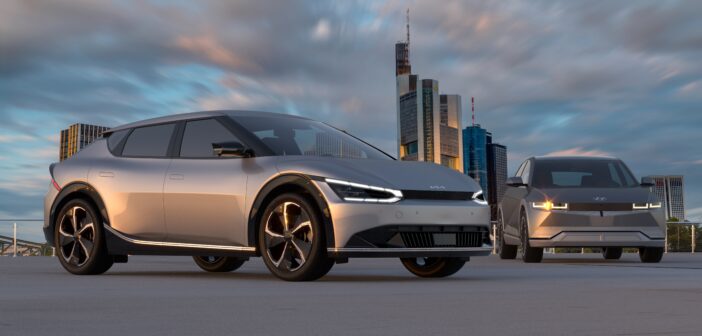Milwaukee is the latest municipality to sue Kia and Hyundai in federal court alleging some of their cars are too easy to steal because of missing anti-theft devices.
“Making sure cars are not easy to steal both protects property and protects the public by keeping dangerous drivers in stolen vehicles off the roads,” the March 22 complaint states. “This case is a clear example of what happens to public safety when car manufacturers cannot be bothered to include standard anti-theft technology in their cars.”
The complaint, filed in the Eastern District of Wisconsin, demands a jury trial and seeks relief to fund automobile theft prevention. Other cities that have filed similar lawsuits include Cleveland, St. Louis, San Diego, Columbus and Seattle.
“If there’s a tracking device on my car, I can easily recover it quickly if it’s stolen,” said Michael J. Rubino, a business litigation attorney in Santa Ana, California. “If I don’t, then there’s higher costs to the city, and the city wants to pass the cost back onto the car companies because they don’t want to pay the money to find these missing cars.”
Federal Motor Vehicle Safety Standards prescribe theft-protection technology in U.S. vehicles, but a TikTok video challenging teens to hotwire Kia and Hyundai cars with a USB cord went viral.
Once the defect became widely known, an unprecedented spike in Hyundai and Kia thefts occurred nationwide, according to the complaint filed by St. Louis.
“The prolific rise in Kia/Hyundai thefts, especially amongst juveniles who proceed to use the cars for joyriding, resulted in fatalities, grave injuries, and significant property damage throughout the country,” the March 27 Missouri complaint states. “Defendants’ decision to put profit over public safety has caused St. Louis, and its citizenry to incur significant damages.”
In St. Louis, there was a 128% increase in the number of reported stolen vehicles last year. Between May 2021 and February 2022, St. Louis received 3,221 reports of vehicle thefts, compared with 7,341 from 2022 to 2023.
“Unfortunately, the city of St. Louis cannot comment on this pending litigation,” said Erin McGowan, associate city counselor.
When asked about the lawsuit, Kia accused the municipality of filing lawsuits that are without merit.
“Kia has been and continues to be willing to work cooperatively with law enforcement agencies in the greater St. Louis area to combat car theft and the role social media has played in encouraging it,” said James Bell, a Kia spokesman.
So far, Kia has contacted more than 2.8 million affected car owners nationwide for a software upgrade and more than 200,000 eligible customers have had the upgrade installed. Kia has also supplied more than 41,000 free steering wheel locks to over 320 law enforcement agencies across the country for distribution to impacted Kia owners, including more than 880 locks to police departments in the St. Louis area.
“We have shipped nearly 15,000 locks directly to impacted owners as well,” Mr. Bell added. “We will continue to provide additional free locks as they are needed.”
However, car companies can’t force motorists to download the upgrade, according to Mr. Rubino, which could potentially impact the amount of money plaintiffs will be awarded if they win.
“If they give drivers notice, but they refuse to come in or download the upgrade, where is the liability for the car company?” he said. “There’s a precedent to be set for determining where does liability start and stop.”
Hyundai has introduced a program in partnership with AAA insurers to offer insurance options, has initiated a program to reimburse affected customers who buy steering wheel locks, launched a website to provide owners with information on all of the support options available, and created a customer support line at 888-498-0390.
“Thieves discovered a specific method by which to bypass the vehicles’ security features and then documented and promoted their exploits on TikTok and other social media channels,” said Hyundai spokesman Ian Gabriel. “In response, Hyundai has taken comprehensive action to assist our customers.”
The subset of Hyundai cars manufactured prior to 2021, primarily “base trim” or entry-level models, did not have engine immobilizers. As a result, Hyundai has provided alternatives to prevent the vehicles from starting.
Those methods include making engine immobilizers standard on all vehicles produced as of November 2021 and rolling out a free software upgrade to prevent the method of theft two months ahead of schedule.
“Hyundai is committed to continuing our efforts in completing the software upgrade for all affected vehicles in the most effective manner possible,” Mr. Gabriel added. “We are communicating with the National Highway Safety Administration (NHTSA) on our many actions to assist our customers.”






